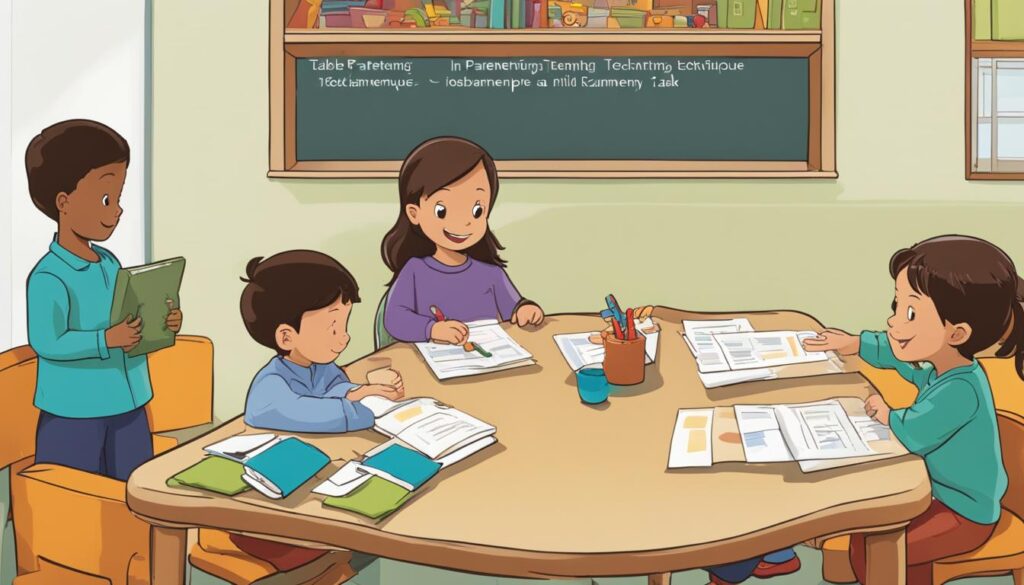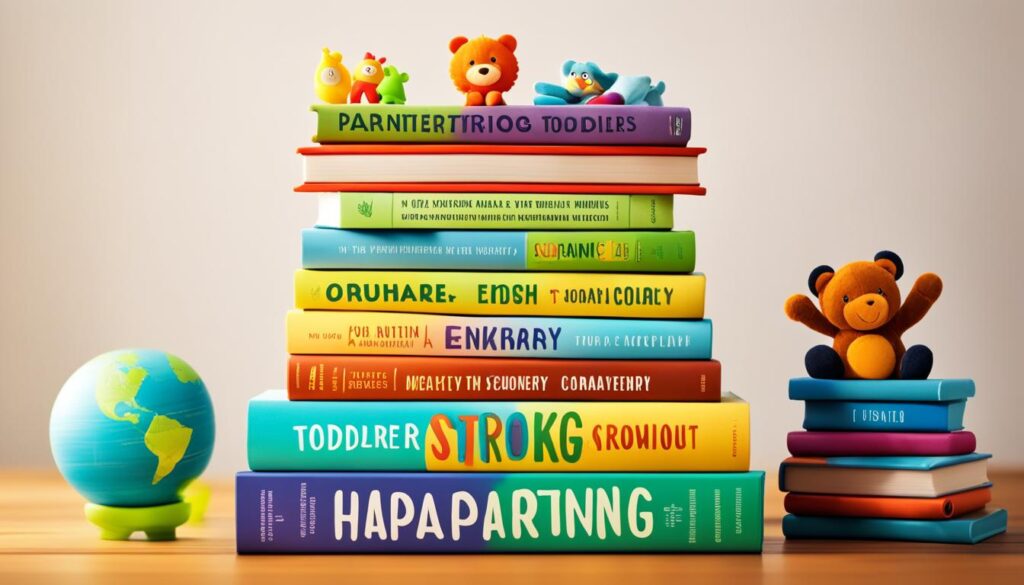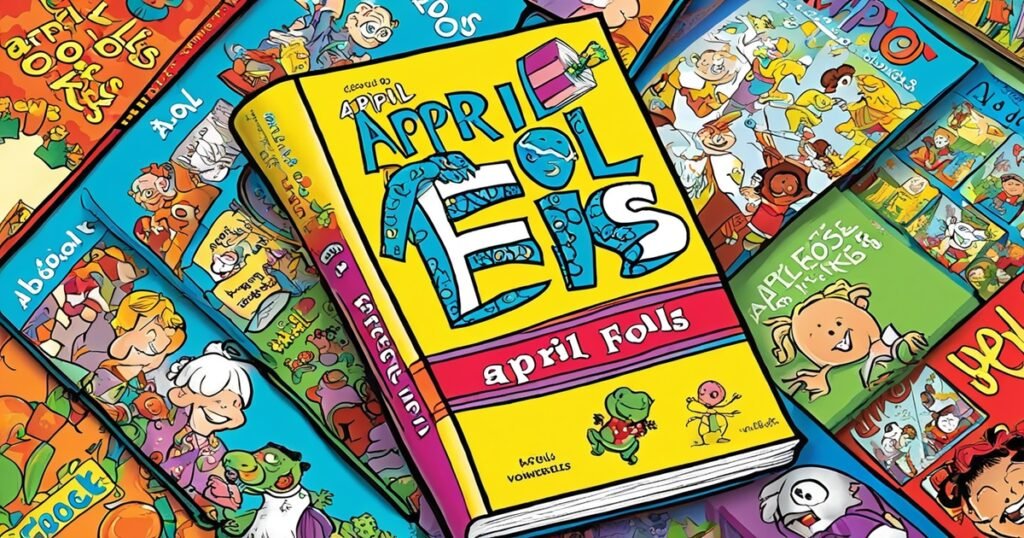Navigating the parenting path of a strong-willed child requires more than simple advice; it demands a deep and comprehensive understanding of these dynamic, bright, and challenging toddlers. Parents often find themselves in relentless negotiation scenarios over simple requests, dealing with boundary-pushing behaviors, and facing power struggles. The resilience and willfulness of such children stretch parental patience, yet their potential to be unwavering leaders and principled individuals is admirable. Books on strong willed toddlers can provide helpful insights and strategies for addressing these behaviors, fostering a greater understanding of this demanding journey.
The greatest support for parents often comes from well-researched parenting books offering actionable techniques that preserve the child’s spirit while fostering their growth. The outlined books provide a plethora of strategies aimed at teaching children to listen and adopt values without coercion. It’s crucial to apply the insights incrementally, executing lessons from a couple of chapters before proceeding. Despite the need for caution in selecting suitable material, avoiding books that endorse challenged approaches like corporal punishment, the resources below stand on solid behavioral research and practical application.
Table of Contents
- Key Takeaways
- Understanding the Strong Willed Toddler
- Effective Parenting Techniques for Strong Willed Children
- Books on Strong Willed Toddlers for Comprehensive Parenting Strategies
- Discipline Techniques that Foster Respect and Growth
- Raising Strong Willed Toddlers Without the Yelling
- Book Recommendations for Managing Sibling Dynamics
- Strategies for Dealing with Emotional Intensity in Strong Willed Kids
- Building Emotional Intelligence in Strong Willed Toddlers
- Recommended Books for Strong Willed Toddlers That Avoid Punitive Measures
- Conclusion
- Source Links
Key Takeaways
- Strong-willed children exhibit a tenacious spirit and require unique parenting approaches, which are found in recommended books for strong willed toddlers.
- Books on strong willed toddlers help parents to understand and navigate the unique challenges and joys that come with raising an independent-minded child.
- The adoption of incremental insights, as suggested by these parenting books, can be extremely useful in dealing with strong willed toddlers.
- Effective parenting for strong willed toddlers involves consistent application of techniques that encourage positive behavior while maintaining a supportive and understanding relationship.
- Using the proper resources for guidance can result in a harmonious family environment where the child feels heard and valued.
Understanding the Strong Willed Toddler
Being a parent of strong-willed toddlers can certainly be challenging, but it’s also incredibly rewarding. These toddlers display a remarkable tenacity and independence, going hand-in-hand with a rich potential for future leadership. Their spirit, although heartening, often leads to power struggles that could prove draining. Gaining a deep understanding of these dynamic toddlers is a solid first step towards effective behavior management for strong willed toddlers and successful parenting.
Defining Strong Willed Characteristics
Strong-willed toddlers can be easy to spot with their spirited demeanor, persistent negotiation skills, and an uncanny propensity to push limits. Their clarity in expressing wants and dislikes shows a distinct self-awareness, a trait that not all children exhibit at such an early age. A comprehensive understanding of these characteristics is crucial to both raising strong willed toddlers and implementing effective discipline techniques for strong-willed toddlers.
Common Challenges and Joys
Along with the challenges come a host of joys that are unique to parenting strong-willed toddlers. The determination they exhibit at meeting their goals, their capacity for problem-solving, and the sheer zest for life make the journey worth the struggles. It’s about managing the power struggles, guiding them towards positive manifestation of their strong will, and celebrating the bright sparks of individuality and leadership.
Expert Insights on Nurturing Independence
Experts in developmental psychology and pedagogy stress the importance of nurturing the independence of strong-willed toddlers. It is essential to strike a balance between guidance and giving them space to express their strong will. Strategies that revolve around listening to them, valuing their perspectives, and guiding them towards making informed decisions go a long way in raising strong willed toddlers.
Through these insights and more, the often daunting task of understanding strong-willed toddlers can be made simpler and productive. Applying these concepts steadily and adapting them as per unique scenarios can result in a smoother parenting journey, enhancing the parent-child bond, and fostering the growth of a well-rounded individual.
Effective Parenting Techniques for Strong Willed Children
As you navigate the journey of raising strong-willed toddlers, understanding the core strategies which lead to successful behavior management is crucial. The challenge lies in maintaining a delicate balance – applying techniques that inspire positive behavior, while preserving a warm and responsive parent-child relationship.
Being successful in the effective parenting of strong-willed children involves consistency, patience, and the proper implementation of diverse methods tailored to their specific needs. Let’s explore a few key strategies that significantly contribute to achieving a harmonious family environment and promoting the overall behavioral development of a strong-willed child.

| Parenting Strategy | Description | Benefits |
|---|---|---|
| Clear Communication | Practice clear, direct, and respectful communication that suits the child’s understanding level. | Facilitates understanding and cooperation. Enhances child’s listening skills. |
| Setting Boundaries | Establish firm but respectful boundaries, letting toddlers know what behavior is acceptable. | Provides structure, helping toddlers feel secure. Teaches them self-discipline and decision-making. |
| Autonomy Support | Encourage independence, let children make choices within set boundaries. | Boosts self-esteem, improvisation abilities and problem-solving skills. |
| Emotional Connection | Emphasize empathy and emotional understanding with your child’s feelings. | Encourages emotional intelligence. Strengthens parent-child bond. |
The diligent application of these strategies reaps multifaceted rewards. For parents, it provides a roadmap leading to a calm and connected family life.
Remember, every child is unique, and so, adapting these strategies to fit their specific needs is paramount. Successful implementation demands an iterative approach that allows parental techniques to be readapted as per the evolving needs of the child.
It is also critical to note that effective parenting categorically rejects punitive measures in favor of discipline that fosters growth and mutual respect. When kids feel valued and understood, it paves the way for nurturing a respectful and deeply satisfying parent-child relationship.
Books on Strong Willed Toddlers for Comprehensive Parenting Strategies
The parenting journey can be a challenging, albeit rewarding, adventure. Equipping oneself with insightful literature can provide the upper hand in tackling this challenging task, particularly when raising a strong-willed toddler. Here’s a brief introduction to some acclaimed parenting books for strong willed toddlers. These recommended readings imbibe proven strategies for dealing with strong willed toddlers, each book offers a unique yet effective approach in handling, understanding, and nurturing your adamant little ones.
“How to Talk so Kids Will Listen & Listen so Kids Will Talk” by Adele Faber and Elaine Mazlish
An absolute classic in the realm of parenting literature, this book emphasizes the art of empathetic communication with children. It covertly manipulates the defiance of your strong-willed toddler into a more cooperative and communicative relationship.
“The Explosive Child” by Dr. Ross Greene
Dr. Ross Greene provides a refreshing insight into understanding and handling stubborn children. The book mainly focuses on strategies to handle frequent fits of wrath and adamancy that strong-willed toddlers typically exhibit.
“The Yes Brain” by Daniel J. Siegel and Tina Payne Bryson
This insightful book provides a unique perception of including ‘Yes’ more into the lives of your strong-willed toddlers. It examines and imparts strategies for reducing resistance from your child and endorsing more appropriate behavior.
Here’s a summarized comparison of these recommended books for strong willed toddlers.
| Book | Author(s) | Key Focus |
|---|---|---|
| “How to Talk so Kids Will Listen & Listen so Kids Will Talk” | Adele Faber and Elaine Mazlish | Enhancing Child-Parent Communication |
| “The Explosive Child” | Dr. Ross Greene | Managing Inflexibility and Emotional Outbursts |
| “The Yes Brain” | Daniel J. Siegel and Tina Payne Bryson | Fostering Cooperation in Children |
Whether it’s managing bouts of explosive emotional outbursts or nudging them into more cooperative behavior, these seminal works have got you covered. Each book promises exhaustive coverage of varied strategies for dealing with strong willed toddlers—an empowering arsenal for braving the rewarding journey of parenting.
Discipline Techniques that Foster Respect and Growth
Effective discipline for strong-willed toddlers hinges on the establishment of clear and respectful boundaries that promote respect and personal growth. Parents often find themselves on a challenging journey of behavior management for strong-willed toddlers. Here, we highlight key techniques such as establishing respectful boundaries, time-ins versus time-outs, and the role of positive reinforcement — all of which are hugely transformative and backed by renowned parenting books.

Establishing Clear and Respectful Boundaries
Strong willed toddlers crave a sense of order and predictability, much of which stems from clear and respectful boundaries. These boundaries also foster respect between you and your child, reinforcing the understanding that while their strong-willed nature may lead them toward independence, there are still rules to follow.
Time-Ins Versus Time-Outs
Often spotlighted among effective discipline techniques for strong-willed toddlers is the time-ins method. This technique is about connecting and engaging with your child, rather than isolating them like in time-outs. The aim is to mitigate feelings of fear or abandonment that traditional time-outs may exacerbate.
The Role of Positive Reinforcement
For strong-willed toddlers, positive reinforcement is incredibly impactful in encouraging desired behavior. Highlighting and rewarding positive behavior shows them the merits of the rules and why they exist. This nurturing limit sets the stage for development of intrinsic motivation and self-discipline.
Let’s consider a comparison table between these key discipline techniques.
| Technique | Description | Benefits |
|---|---|---|
| Establishing Clear and Respectful Boundaries | Creating and enforcing reasonable rules that the child understands. | Promotes respect and understanding. |
| Time-Ins Vs Time-Outs | Engaging with the child to correct behavior, rather than isolating them. | Fosters a secure connection between parent and child. |
| Positive Reinforcement | Emphasizing and rewarding the child’s good behavior. | Encourages repetition of good behavior over time. |
In conclusion, each of these techniques have their unique advantages in promoting respect and fostering personal growth in strong willed toddlers. Ultimately, and most importantly, the key to effective parenting for strong-willed toddlers lies in consistency, understanding and love.
Raising Strong Willed Toddlers Without the Yelling
The journey of raising strong willed toddlers can undoubtedly bring great rewards, while simultaneously testing the limits of parental patience. Understandably, the unruly behaviors of these spirited children sometimes result in increased parental stress and a resultant reliance on yelling to establish discipline.
However, we are stepping into an era where mainstream discipline techniques for strong willed toddlers and parenting guides are shifting from focusing on confrontations to cultivating connections. This refreshing perspective introduces techniques intended to nurture healthier relationships between parents and children.
These practical techniques encompass a broad spectrum. They range from building an in-depth understanding of parental emotions and responses to the cultivation of a collaborative and respectful environment within the family dynamics. Within such nurturing surroundings, threats and punishments begin to lose their grip, eventually becoming redundant.
“The goal is not merely to modify behavior, but to foster a relationship where yelling is replaced by supportive, empathic, and effective communication. In this way, we are creating family environments where the child’s individuality is respected and nurtured, thereby fostering their social and emotional development.”
If you’re in the throes of parenting a spirited child and seeking strategies for dealing with strong willed toddlers, rest assured that the recommended books and resources are enriched with relatable scenarios and practical solutions. These strategies aim not just at addressing immediate behavioral issues but also reinforcing a supportive and stable relationship between you and your toddler in the long run.
Book Recommendations for Managing Sibling Dynamics
Families with multiple children frequently encounter an added layer of complexity, particularly when dealing with strong-willed toddlers. To aid in effective parenting for strong willed toddlers and to foster peace and cooperation among siblings, we turn to the wisdom contained in expertly crafted parenting books.

“Peaceful Parent, Happy Siblings” by Dr. Laura Markham
Dr. Laura Markham’s “Peaceful Parent, Happy Siblings” can be unquestionably classified under recommended books for strong willed toddlers. This invaluable resource delivers strategies that aim to dissolve fights and enhance harmony within the household. With a keen focus on allocating individual attention and nurturing empathetic sibling relationships, parents are better equipped to handle toddler rivalry and conflict.
“Siblings Without Rivalry” by Adele Faber and Elaine Mazlish
A companion on the journey of behavior management for strong willed toddlers is “Siblings Without Rivalry” by the renowned authors Adele Faber and Elaine Mazlish. This book is a treasure trove of actionable advice, preventing and managing conflicts and helping multitoddler households maintain a peaceful environment. The strategies these authors share are practical and solution-oriented, encouraging cooperation and mutual understanding among siblings. Consequently, they help reduce tension in the household and create a nurturing atmosphere for all children involved.
Strategies for Dealing with Emotional Intensity in Strong Willed Kids
Parenting a strong-willed toddler can be quite challenging, and it seems even more so when the child displays intense emotional reactions. To assist parents with this, there are several parenting books for strong-willed toddlers which are specifically designed to provide strategies for dealing with strong-willed toddlers. These books offer a comprehensive understanding of child behavior, allowing parents to establish effective behavior management for strong-willed toddlers.
On the top of this list are Parenting the Strong-Willed Child by Rex Forehand and Nicholas Long and Parenting a Child Who Has Intense Emotions by Pat Harvey and Jeanine Penzo.
“Parenting the Strong-Willed Child” by Rex Forehand and Nicholas Long
This book offers parents a clinically-proven five-week program for improving behavior. The program helps parents learn to encourage good behavior, promote positive change, and most importantly, establish a stronger relationship with their child.
“Parenting a Child Who Has Intense Emotions” by Pat Harvey and Jeanine Penzo
Providing parents with a powerful new set of tools, this book employs dialectical behavior therapy principles to help parents understand their child’s intensity, teach them to regulate their emotional responses, and build a stronger understanding of the child’s feelings.
Through these books, parents can gain the knowledge and insights needed to navigate the turbulent seas of parenting a strong-willed toddler.
Building Emotional Intelligence in Strong Willed Toddlers
Developing emotional intelligence is a critical aspect of raising strong-willed toddlers. It aids them in navigating their feelings and forming successful relationships. Specially curated parenting books provide insightful strategies for fostering emotional intelligence in these unique children.

“Permission to Feel” by Marc Brackett
A recommended read for parents hoping to understand and cultivate emotional intelligence in their children is “Permission to Feel” by Marc Brackett. The book presents an innovative approach named the R.U.L.E.R. method. This devised system educates parents on how to Recognize, Understand, Label, Express, and Regulate their toddler’s emotions effectively.
“Raising An Emotionally Intelligent Child” by John Gottman
John Gottman’s “Raising An Emotionally Intelligent Child” offers a comprehensive view on the instrumental role parents play in shaping their child’s emotional intelligence. Gottman places a high degree of importance on emotive communication and the acknowledgment of a child’s feelings. The book imparts useful techniques and exercises for parents to guide their strong-willed toddlers towards understanding and expressing their emotions constructively.
By implementing these effective parenting methods underscored in these prominent books, parents can set their strong-willed toddlers on the path to emotional well-being and interpersonal success, leading to a harmonious and nurturing family environment.
Recommended Books for Strong Willed Toddlers That Avoid Punitive Measures
Parenting a strong-willed toddler is not an easy endeavor. They are not the ones to bend easily to instructions, they possess a unique kind of stubbornness that can be challenging at times. However, with the right guidance and support, parenting these dynamic and spirited toddlers can be a rewarding journey. It is essential to find strategies that focus not just on behavior management for these bold little personalities but also nurturing their spirit and promoting their well-being. Here we discuss two critically acclaimed parenting books that equip parents with compassionate, reasoned guidance, devoid any punitive measures, which allow parents to effectively navigate their unique child’s behavioral challenges.

“Unconditional Parenting” by Alfie Kohn
This insightful read steers clear of traditional joystick and carrot-and-stick approaches that are often channeled towards control based parenting. Kohn presents a fresh perspective; he argues that the ultimate goal of parenting should not just be about getting kids to comply, instead he emphasizes love and reason to inspire intrinsic motivation within kids. His approach challenges the conventional techniques, suggesting that rewards and punishments might work in the short term but are counterproductive in the long run.
“No-Drama Discipline” by Daniel J. Siegel and Tina Payne Bryson
Disciplinary moments need not be distressing, yet they can be the most stressful part of parenting. No-Drama Discipline provides an effective and compassionate roadmap for dealing with tantrums, tensions, and tears. It focuses not on control but on teaching kids how to self-regulate, leading to better behavior in the long run. The book highlights the fascinating link between a child’s neurological development and the way a parent reacts to misbehavior. It combines the latest research in brain development with effective strategies to shape better behavior.
These books offer a refreshing outlook on parenting strong willed toddlers. They advocate for an empathetic and compassionate approach to parenting, mechanisms that promote understanding, connection and inculcate responsible behavior in kids, thereby aiding parents who are on the lookout for effective parenting strategies for their strong-willed toddlers.
Conclusion
In the realm of effective parenting for strong willed toddlers, arming oneself with the right knowledge and strategies is integral. Turning to recommended books like “How to Talk so Kids Will Listen & Listen so Kids Will Talk” by Adele Faber and Elaine Mazlish or “The Explosive Child” by Dr. Ross Greene provide parents with invaluable insights for handling the unique dynamics and challenges that come with raising a strong-willed toddler.
The pursuit of knowledge through books on strong willed toddlers acts as a compass guiding parents to create peaceful and harmonious home environments. These resources celebrate the child’s individuality while offering proven strategies to foster emotional intelligence, manage sibling dynamics, and handle emotional intensity. Clear and effective communication, firm yet nurturing disciplinary measures, and an empathetic understanding of the child’s intricate emotional world lie at the core of these strategies.Strategies for dealing with strong willed toddlers begin with realizing that each child is unique and works best with tailored approaches.
When selecting guides for parenting strong-willed toddlers, it’s crucial to select those that promote a nurturing, understanding approach. These recommended books for strong willed toddlers fortify parents with techniques and principles that shape resilient, confident, and well-adjusted children. The journey may be rife with challenges, but it is also deeply rewarding. These books are the companions that make the process more navigable and insightful, paving the path for parents and strong-willed toddlers to thrive together.
FAQ
What books can help me understand and parent my strong-willed toddler?
Numerous well-researched and psychology-based books such as “How to Talk so Kids Will Listen & Listen so Kids Will Talk” by Adele Faber and Elaine Mazlish, “The Explosive Child” by Dr. Ross Greene, and “The Yes Brain” by Daniel J. Siegel and Tina Payne Bryson offer invaluable guidance for parenting strong-willed toddlers. These guides provide practical strategies and frameworks, focusing on effective communication and discipline techniques that respect the spirit of your child and promote their character development.
How can I effectively discipline my strong-willed toddler?
Effective discipline for strong-willed toddlers necessitates clear and respectful boundaries and a consistent application of discipline techniques that emphasize emotional connection and autonomy. This approach should avoid punitive measures, promoting growth instead. Key books like “Unconditional Parenting” by Alfie Kohn and “No-Drama Discipline” by Daniel J. Siegel and Tina Payne Bryson provide practical discipline techniques that foster a respectful and understanding relationship with the child.
How can I manage sibling dynamics when raising a strong-willed toddler?
Dealing with sibling interactions in the milieu of strong-willed toddlers can be challenging. Helpful resources for this are “Peaceful Parent, Happy Siblings” by Dr. Laura Markham and “Siblings Without Rivalry” by Adele Faber and Elaine Mazlish. These books offer strategies that cultivate empathy among siblings, encourage cooperation, and reduce conflict, creating a harmonious family environment.
How can I deal with the emotional intensity of my strong-willed toddler?
Certain books, such as “Parenting the Strong-Willed Child” by Rex Forehand and Nicholas Long and “Parenting a Child Who Has Intense Emotions” by Pat Harvey and Jeanine Penzo, offer strategies to handle emotional outbursts and aggressive behavior. These resources provide parents with practical advice on understanding the underlying causes of your toddler’s intense emotions and strategies for effective behavior management.
How can I foster emotional intelligence in my strong-willed toddler?
Developing emotional intelligence in strong-willed toddlers is crucial for their interpersonal success. Books like “Permission to Feel” by Marc Brackett and “Raising An Emotionally Intelligent Child” by John Gottman provide strategies and exercises for helping toddlers grasp and express their emotions more constructively, thereby promoting emotional well-being.



